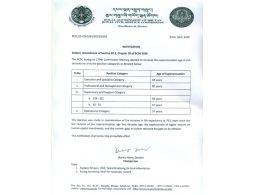In a move that could mark the beginning of a cleaner, more sustainable future, Thimphu’s first composting facility began operations today at the Memelakha landfill, introducing a Japanese aerobic method to turn food and market waste into valuable organic fertiliser.
The initiative, though modest in scale, represents a decisive shift from simply burying garbage to actively recovering and reusing it. Organic matter such as vegetable peels, leftovers, and market waste accounts for more than half of the city’s daily rubbish — over 30 tonnes that have, until now, been dumped at Memelakha.
For years, that waste has rotted in place, producing thousands of litres of toxic leachate daily and releasing methane gas, a potent contributor to climate change. “Usually, around 3,000 to 6,000 litres of leachate are produced in the Memelakha landfill site every day,” said Sonam Wangchuk, Chief Environment Officer at Thimphu Thromde. “This compost plant will reduce the wet waste going to landfill, and in turn, significantly cut down leachate production.”
Inside the new plant, heaps of discarded vegetables are churned with soil in a mechanical mixer. The process is precisely measured: seed compost, brown sugar, rice husk, and water are added to trigger fermentation. As natural heat builds up, the organic matter breaks down into nutrient-rich compost — without foul odours or harmful runoff.
The finished compost will be sold at affordable prices, providing farmers and gardeners with a sustainable alternative to chemical fertilisers. This aligns with Bhutan’s national goal of achieving 100 percent organic agriculture by 2035.
However, officials stress that public participation is essential. Proper waste segregation at home and in businesses will determine the plant’s success. “When waste arrives mixed, we have to separate it here again,” Wangchuk said. “We request every individual to be conscious of their waste and responsible in how they dispose of it.”
The project was made possible through a grant of approximately USD 47,000 (over Nu 4 million) from the Institute for Global Environmental Strategies.
City leaders hope this marks the start of a broader transformation in Thimphu’s waste management — one where organic waste is no longer a burden, but a resource returned to the earth as nourishment.








